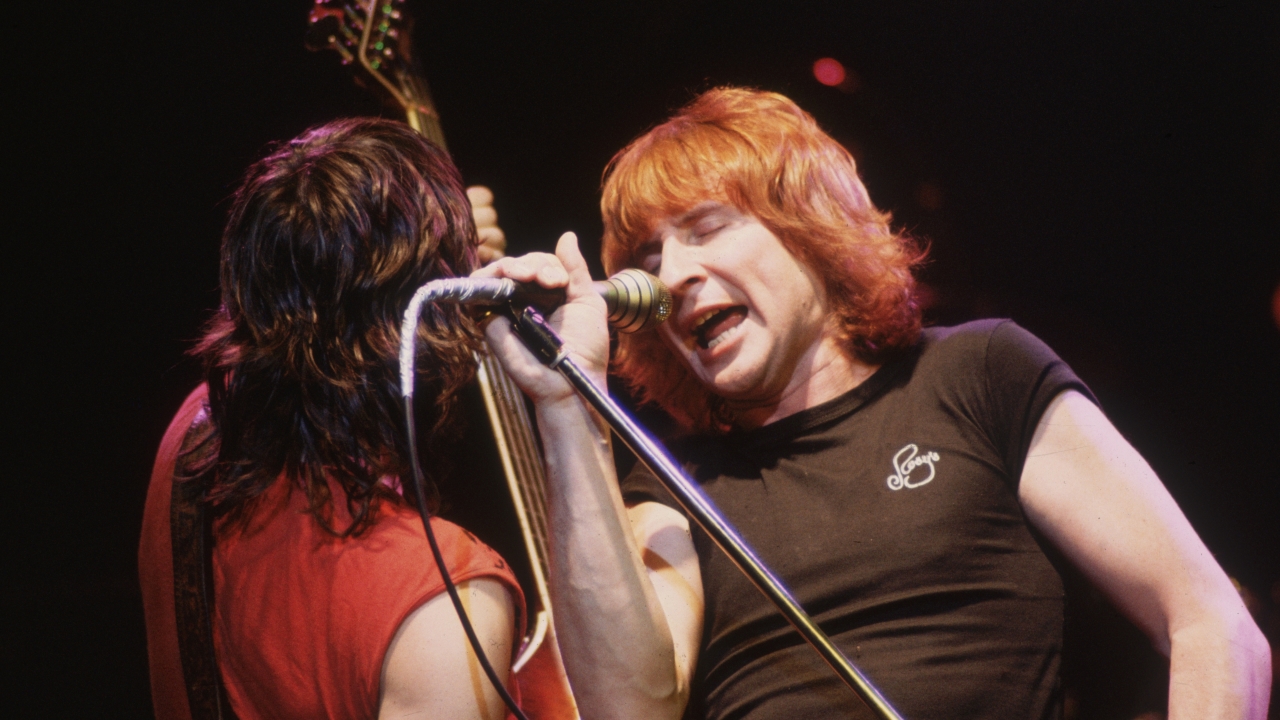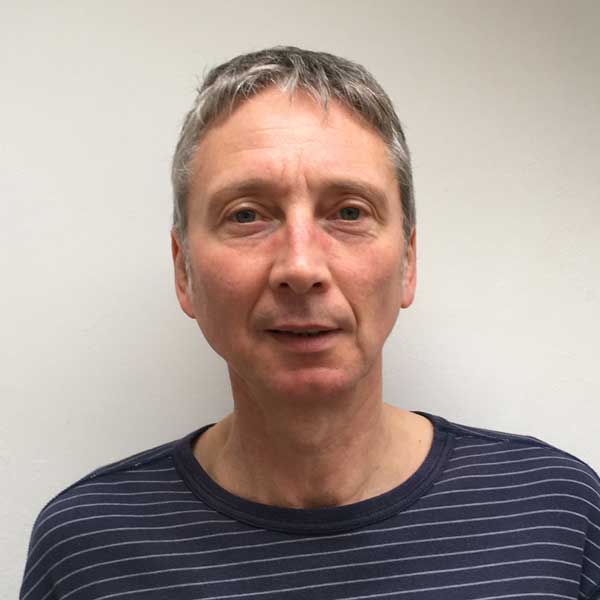Although best known for high-energy rockers such as Let It Roll, Too Hot To Handle and Lights Out, UFO have always had a softer side. Their albums typically include at least one song in a mellower vein, of which Profession Of Violence from 1981’s The Wild, The Willing And The Innocent album is a prime example.
UFO message boards have long urged the band to revisit songs in this style, and from this era. Indeed, singer Phil Mogg tells Classic Rock that the band have considered adding it to the current set list: “We’ve done Try Me (from Lights Out, 1977) recently and have thought about Belladonna (No Heavy Petting, 1976) and Profession Of Violence, too – just to mix the set up a bit.”
Good news, then. The story of Profession Of Violence starts with then guitarist Paul Chapman explaining that he wrote the incredible guitar solo (that forms the second half of the track) paddling in the warm Caribbean waters lapping the island paradise of Montserrat while recording UFO’s 1980 album No Place To Run…
“That’s the only solo that I’ve ever written before I had a backing track. I used to go down to the beach with an Ovation acoustic and just stand knee-deep in this beautiful crystal clear water, just jamming away. There were no waves, I’d stand there for hours, while my feet shrivelled up. I came up with this melody there, recorded it later on my Revox.
“I discovered that part of it is in a harmonic minor scale which I didn’t even know about at the time. All I knew was that this thing sounded good. When I showed the chords to Phil he came up with the vocal and then I brought back the solo. We did it totally backwards.”
But Chapman’s description of the writing process definitely jogs a memory with Mogg: “Yeah… That’s what we used to do with a lot of Michael’s stuff, too. He’d put solos down and if it sounded really cool, we’d work out a chord sequence to go with it and put a song around the solo.”
The title and lyric came later, both inspired by the 1972 book The Profession Of Violence: The Rise And Fall Of The Kray Twins. Drummer Andy Parker reckons: “That was a book that I had, originally. I’m not sure if I leant it to Phil or he bought his own, but he’s always had this thing where he reads stories and gets idea for songs.”
Mogg: “I’d read the book and liked the title – although I preferred Profession Of Violence without the The – and sometimes I write down different titles for later use. But I often forget things and they only come back to me years later and I think: ‘Oh, that’ll work!’
“The lyric was more of a sad affair than the subject matter of the book – which was more of a fucked-up thing. Being banged up isn’t very pleasant. If you’re a big-time gangster maybe you get used to it, but for the average Joe it’s not very pleasant and Profession Of Violence was more of a sympathetic ear for those left behind.”
The poignancy of Mogg’s lyrics are superbly emphasised by a string section arranged by one Paul Buckmaster – a cellist best known for his 1970s work with Elton John, but who also worked with the Rolling Stones on Sticky Fingers, David Bowie’s Space Oddity and, more recently, Axl and co’s Chinese Democracy. But it was the Elton John track Sixty Years On (on his breakthrough eponymous second album) which led Mogg to choose him.
“I think he was supposed to have been working on the Flash Gordon soundtrack, but then they got Queen to do it so he had time to work with us.
“We were never very good with money so I didn’t think to ask how expensive he might be. The album saw us run up a huge debt. We were just shown into Studio One and left to get on with it. It was near Oxford Circus and dead expensive…”
- The Story Behind UFO's classic No Place To Run
- Heavy Load: Phil Mogg
- UFO: "We used to take Mandrax as if it were aspirin, we didn't care"
- The Story Behind The Song: Balls To The Wall by Accept
Neither Mogg or Parker can recall how they ended up recording without a producer. Parker: “Steve Churchyard was the engineer but he ended up producing it with us. I’m wondering how the hell we ended up doing that – did Chrysalis just not give us a producer?! Why we would have been in Air London, good studios, where we’d have been running around like a chicken with no head? We needed producers to tell us what to do, otherwise we’d have just gone down the pub, drinking and not really getting much done!”
Mogg: “Leaving us to our own devices was never a very good idea. The debt just built up. It was only around 2002 that it finally got paid off.”
Mogg: “We did have a great time doing that album. There was none of that studio tension you sometimes get. Air was right in town and it felt like a real English rock’n’roll album.”
Last word, then, to the man who started it all, on recording the solo that ends it…
Chapman: “The day we recorded it, my red BC Rich 10-string arrived from America. We’d just been on tour with Aerosmith, and Joe Perry was playing one of these – a wicked space machine with all the bells and whistles on. I took one look at his and said: ‘I want one of those!’ So I got in a cab to my mate Kevin’s in Denmark Street, picked it up, came back to the studio, tuned it up, plugged it in, and the first thing I recorded was that solo!
“Steve Churchyard and I worked on it again later at Air Studios. At the end of the solo – which you don’t hear now – I held that note, swooped it round, put this echo on it and it sounded like the end of World War III. It was amazing. I said something to Steve like: ‘It would be really, really dreadful if that got wiped,’ and I found out later that that’s exactly what he did. He just misheard me. We got our wires crossed or something. I think there was Special Brew involved. That’s the only thing I regret about that album.”
UFO’s Strangers In The Night: the live album that nearly restarted World War 2

